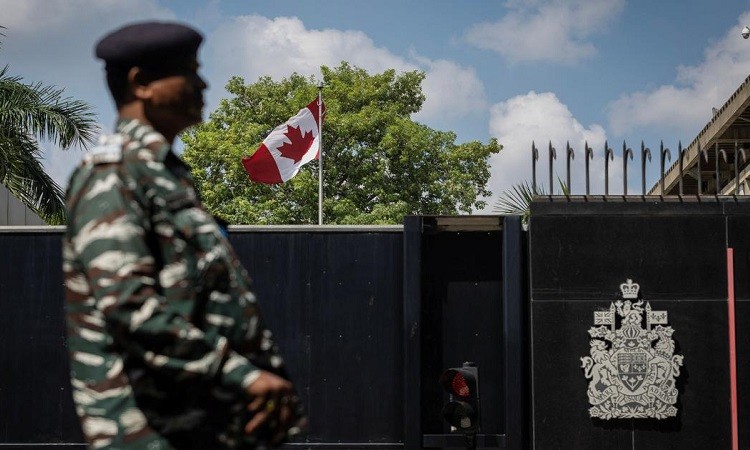
Canada Moves Diplomatic Staff From India to Singapore and Kuala Lumpur: Canada has made the decision to withdraw the majority of its diplomatic staff from India, and has chosen to relocate them to either Singapore or Kuala Lumpur, Malaysia. This strategic move underscores Canada's commitment to maintaining robust diplomatic relations in the region while optimizing its resources and presence. The shift to these key Southeast Asian hubs not only enhances Canada's diplomatic reach but also reflects its recognition of the growing economic and political significance of the Asia-Pacific region. It signifies Canada's intent to engage actively with its Asian counterparts and foster stronger ties for mutual benefit.
The Indian government has issued a stern directive to Canada, demanding the withdrawal of a substantial number of its diplomatic staff currently stationed in India. This move comes amidst growing tensions between the two nations, with New Delhi insisting that Ottawa repatriate approximately 40 diplomats by the looming deadline of October 10. These developments were first brought to light by sources familiar with the situation..
As of now, the Indian government has refrained from issuing an official statement regarding this latest diplomatic rift. Canada, on the other hand, currently maintains a contingent of 62 diplomats within India. However, India has adamantly asserted that this number must be drastically reduced by 41, as indicated in the report.
The deteriorating diplomatic relationship between New Delhi and Ottawa reached a nadir following Canadian Prime Minister Justin Trudeau's recent assertion. Trudeau raised suspicions that the Indian government may be linked to the assassination of Hardeep Singh Nijjar, a notorious Khalistani terrorist. Nijjar, designated as a terrorist in India, met his demise in a hail of gunfire outside a Gurdwara in Surrey, British Columbia, on June 18.
During a parliamentary debate in Canada, Trudeau went so far as to suggest that Canada's national security agencies had credible grounds to suspect the involvement of "agents of the Indian government" in Nijjar's assassination. Notably, Nijjar had also held the position of president at Surrey's Guru Nanak Sikh Gurdwara.
However, India vehemently refuted these claims, dismissing them as "absurd" and driven by ulterior motives.
Crucially, the Indian government has underscored that Canada has yet to furnish any public evidence substantiating the allegations surrounding Nijjar's murder.
External Affairs Minister S. Jaishankar recently weighed in on the matter, asserting that the contentious relationship between India and Canada has been simmering for several years. This, he attributed to what he termed the "permissive" stance of the Canadian government towards terrorism, extremism, and violence within its borders. Despite the ongoing standoff, Jaishankar emphasized that this situation should not be classified as a "deadlock." He iterated India's willingness to evaluate any specific and pertinent information shared by the Canadian side pertaining to the issue.
In a notable international development, the United States weighed in on the issue. The Joe Biden administration has engaged in discussions with the Indian government on multiple occasions, urging them to collaborate with Canada in its ongoing investigations into the death of Hardeep Singh Nijjar. Secretary of State Antony Blinken, during a recent meeting with Minister Jaishankar, highlighted the importance of cooperation between the two nations.
State Department spokesperson Mathew Miller, in a press briefing, emphasized, "As he made clear then, I'll reiterate now, we remain in close coordination with our Canadian colleagues on this question. We have engaged with the Indian government on a number of occasions to urge them to cooperate with Canada's investigation.